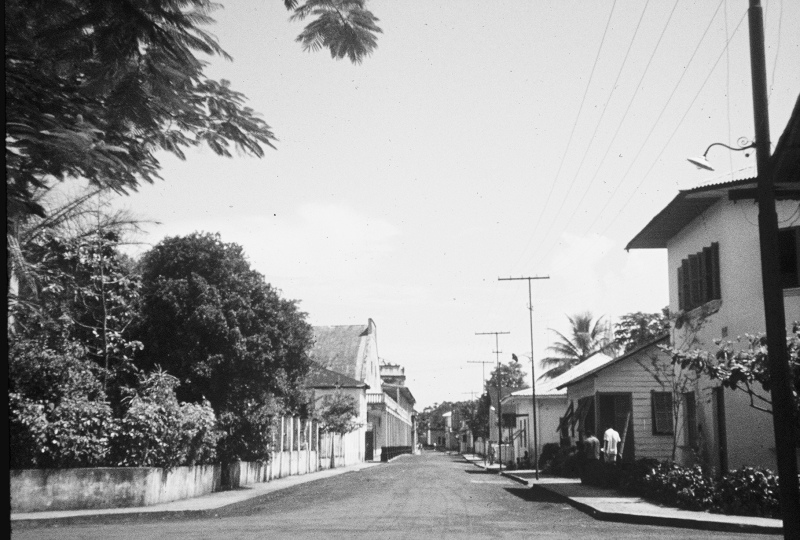Now Available in Audiobook!

LISTEN TO AUDIOBOOK SAMPLE:
AUDIO-VISUAL SAMPLE
VACCINES & BAYONETS: Fighting Smallpox in Now Africa amid Tribalism, Terror and the Cold War is as true as I can make it. My memory of these long ago events is supplemented by hundreds of pages of personal archives–letters, cables, reports, diary entries, tape letters, and home movies.
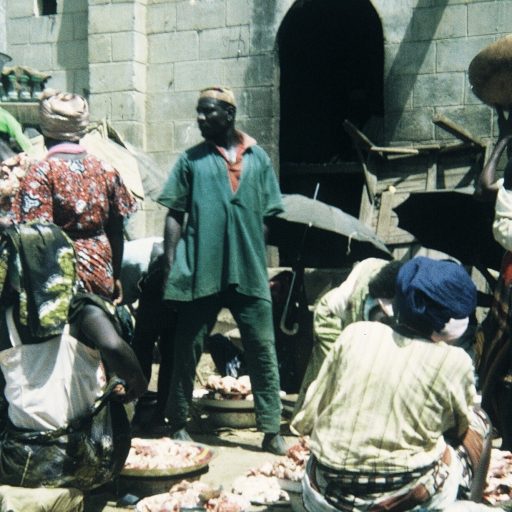
Available to bookstores and other retailers from Ingram Content Group and to libraries.
Book Description:
Step into the heart of a turbulent era with a gripping historical memoir that chronicles one woman’s extraordinary journey in Africa. In this vivid recounting—which one Pulitzer nominee says, “reads like a political thriller, women’s history, and African adventure rolled into one,”—Bee Bloeser unveils the raw reality of her family’s part in the mission to eradicate smallpox, revealing triumphs and trials faced along the way. 
As a young wife with two young children, Bloeser follows her husband, Carl, to Africa, driven by ideals and a sense of duty. In Nigeria she witnesses the roots and ravages of civil war and the horrors of smallpox and leprosy, yet finds beauty in the vibrant local culture.
In Equatorial Guinea, a nation newly independent but plagued by the terror of a brutal dictatorship, secrecy shrouds the people, and Bloeser confronts a world far removed from her idealistic expectations. Forbidden from interacting with locals and surrounded by oppression and suspicion, she documents her experiences in hidden notes, capturing the essence of a desperate struggle.
Through her eyes, readers experience the intense battle against a relentless virus and against tyranny. This Amazon #1 Bestselling memoir is a story of medical triumph but also a poignant reflection on humanity’s capacity for courage—the indomitable spirit of those who risk everything for a better future.
Selected excerpts of Vaccines & Bayonets:
from the Prologue
It was called the Cold War. The powerful angled for more power. They eyed the resource-rich continent of Africa with its newly and soon-to-be independent countries. Russia and her allies, America and hers, China—they all purchased loyalty with aid. They fought proxy wars. The CIA, the KGB, Israel’s Mossad, and more maneuvered to outwit each other in now widely documented espionage.
In this Cold War context, Carl and I, with our two young children and wide-eyed ideals, moved to West Africa, assigned first to a country that was always in the news and then to one that should have been….
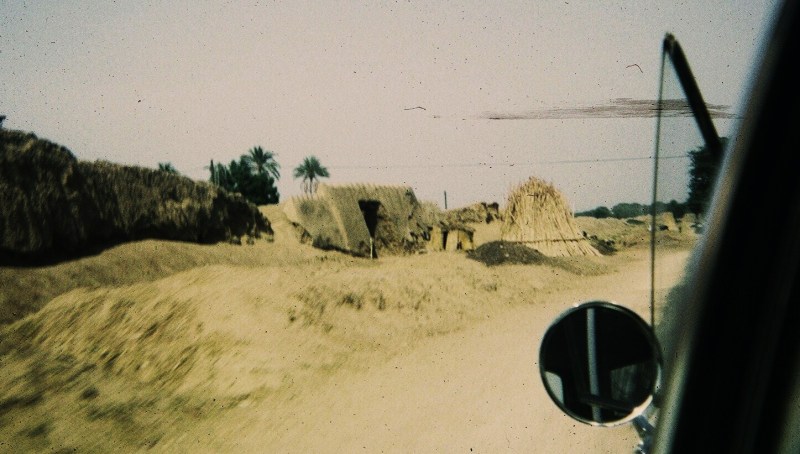
from the chapter “Ranka Didi”
In the front seat with his driver, Carl leaned forward, searching. At the last mud-walled village he’d heard there was an encampment of nomads nearer the Niger border. He had to find them before they moved on. For my husband, vigilance was not optional. We knew exactly what was at stake. More than once today out here in the Sahel, this belt between Sahara and savanna, people had appeared out of nowhere, many with skin covered by the ugly, hard-earned badge of having survived smallpox. Running toward our truck, they raised their fists and shouted. “Ranka didi!” May you live long! Then the ululation – the long, emotional high-pitched trilling sound. It was a common response to our white Dodge Power Wagon and its large letters, Smallpox Measles Program. . . . Among those closest to my window were two women, a mother and daughter I thought. The older woman’s eyes locked with mine, and tears streamed down her cheeks.“Ranka didi!”
Perhaps the younger woman had been beautiful—before smallpox. With her deep, pitted scars she could manage only a hint of a smile. But her vision had been spared, and it seemed that an urgent light burned in eyes framed by pockmarks where eyelashes should have been. I recoiled inside, fought to keep my face from revealing the wave of nausea, and forced myself to look into her eyes. That’s it. Concentrate. Just focus on her eyes.
I knew about viruses. I knew that when a virus finishes using one cell, one person, one host, leaving it damaged or dead, it has to find a new one so it can continue making copies of itself. And then find another. And another. It’s what a virus has to do.
~ ~ ~ ~ ~ ~ ~ ~ ~ ~
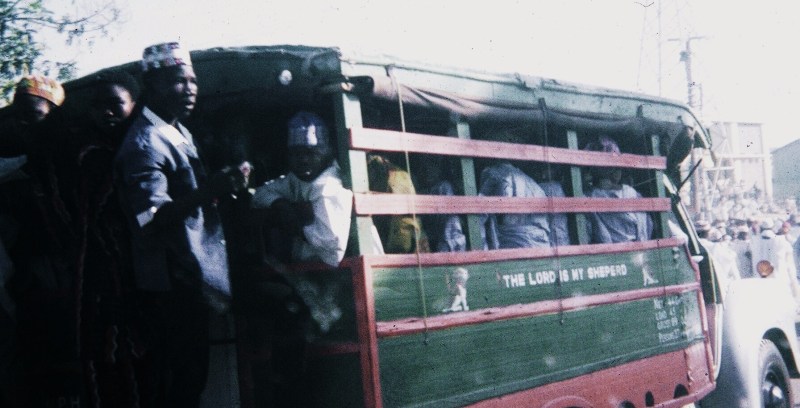
from “Smallpox Target Zero”
Taken from a letter to family back home:
For the mass vaccination campaigns, assembly points are set up (selected so people don’t have to walk farther than 8 km to reach the site), and the vaccinators and their jet injectors go to work. Smallpox vaccination is given to everyone, and measles vaccination to young children.
In these Muslim areas, they vaccinate men and women separately. The men go through the line first and then go home and bring the women and children. I’m trying to picture families who live several kilometers away. Do the men bring the women and stash them out of sight somewhere, get themselves vaccinated and then go retrieve the women from hiding?

from “Smallpox-Measles Logistics”
Taken from another letter home: I have to tell you about our trucks. Parts and maintenance. Oh, my goodness! What a problem! You see, USAID requires us to use American-made vehicles. CDC tried to get an exemption for working in this environment but no such luck. The huge Dodge Power Wagon is too wide for a lot of the roads and is too heavy for the bridges. In other parts of West Africa, many bridges are made of bamboo and our trucks often break through! Breakdowns happen out in the bush all the time. You should see the line of seven or eight trucks broken down awaiting repair. It’s a smallpox program salvage yard. When an axle snaps, they might have to wait at least two months for one to be shipped from the States. Or it could be longer. The Vietnam War has priority. Some trucks are cannibalized to provide parts for others. In areas where there are rubber trees, repairs might be rigged with tree sap and cotton balls! We need vehicles suited to Africa—with fuel filters that tolerate the local gasoline, with availability of local parts and service. Not a truck too wide, too heavy, too everything for the environment. In other words, we need Land Rovers.
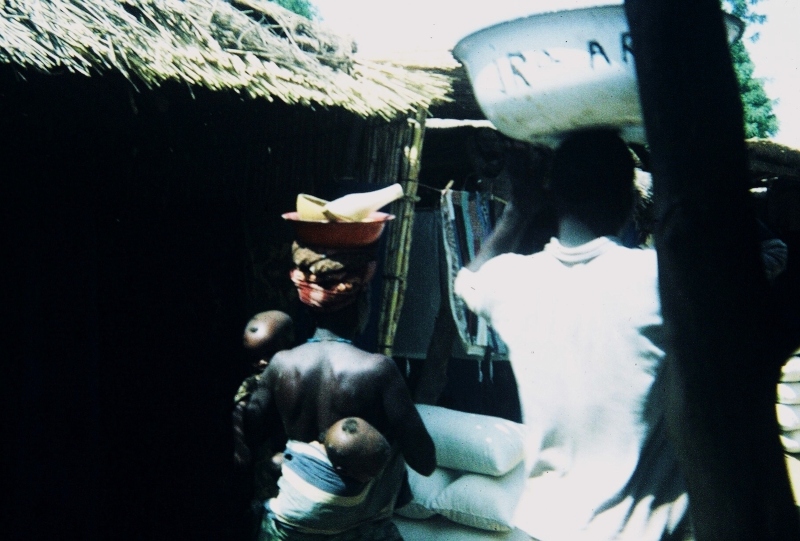
~ ~ ~ ~ ~ ~ ~ ~ ~ ~
The Smallpox Eradication Program transfers our family to a new country.
from “Mr. Ambassador”
As our luggage was taken from the small plane a crisis erupted with our very large cat. Soldiers in rumpled dark green fatigues, eyes wide and legs braced, surrounded his wire kennel….I heard one of the soldiers say something about a leon. I wondered if these were the “calm largely restored” soldiers I’d been promised…. Carl said in my ear, “We’ll be okay,” as our family followed the soldiers toward the shed that served as a terminal. Even in the dim light of the musty interior I could tell that no one smiled. Neither soldiers nor passengers…. 
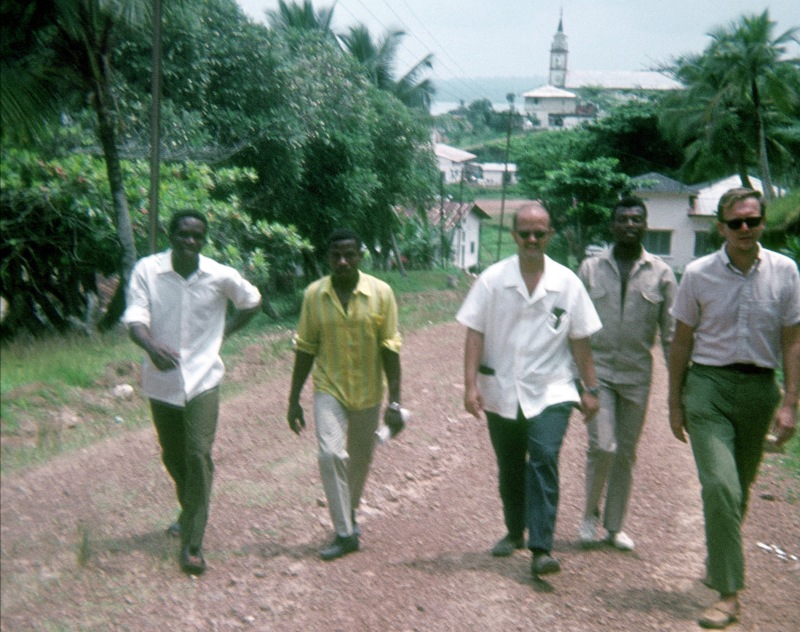
from “Eerie Silence”
After several nearly empty stores, we passed the post office. Nothing happening there.
Hardly a car was in sight on the streets, and only the occasional pedestrian. What’s going on? How silent and empty this place.
And I suddenly realized something else—no music. It wasn’t just the absence of voices and laughter, car horns and bicycle bells. I heard no rhythms of drums or chants. No mellow tones from flute or thumb piano coming from any of the businesses or shanties. Just silence….
